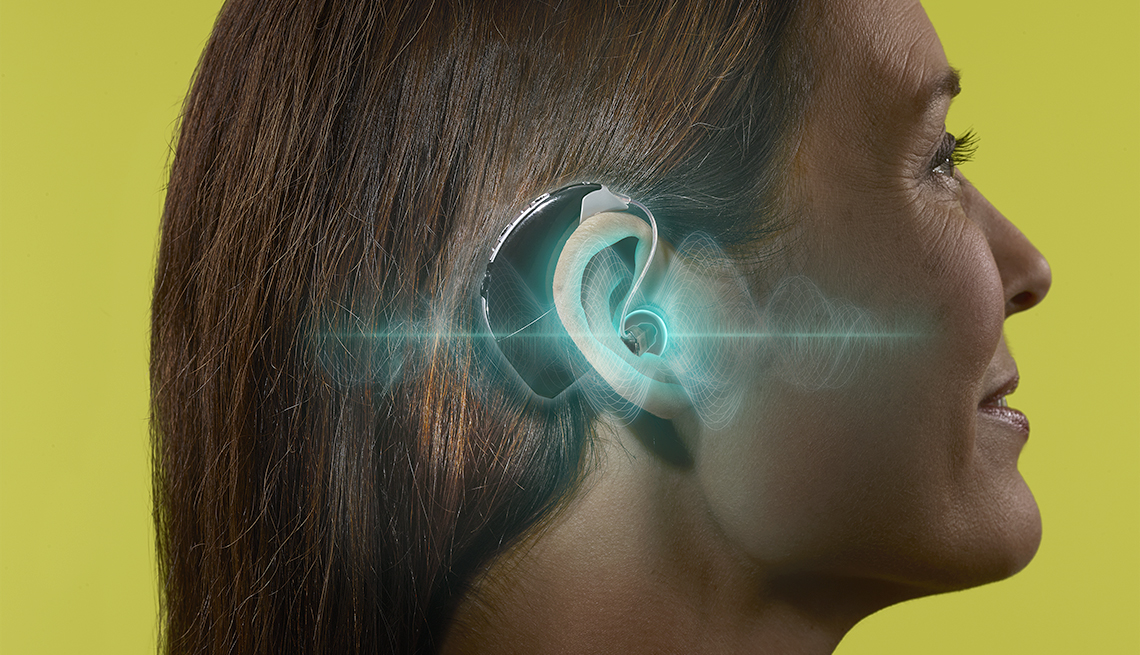
- Select a language for the TTS:
- UK English Female
- UK English Male
- US English Female
- US English Male
- Australian Female
- Australian Male
- Language selected: (auto detect) - EN
Play all audios:
Recent research funded by the National Institutes of Health and led by Frank Lin, M.D., of Johns Hopkins University studied nearly 1,000 people ages 70 to 84 who had significant hearing
loss. The study participants were randomly assigned to two groups: One received hearing aids and were taught how to use them. The second group — the control — was enrolled in a health
education program. The study found that those who wore hearing aids, not surprisingly, reported a substantial uptick in communication abilities, according to results published in 2023 in
_The Lancet_. When the researchers looked at all 1,000 participants over the three-year period, they didn’t see that hearing aids made a difference in their memory or thinking skills but,
notably, when they analyzed a group at higher risk for dementia, they found that the hearing aids cut their risk of cognitive decline nearly in half. A separate Johns Hopkins Bloomberg
School of Public Health study published in 2023 in the _Journal of the American Medical Association_ looked at more than 2,400 older adults, half of them over 80, and found that the
prevalence of dementia was 61 percent higher among those with moderate or severe hearing loss than among those with normal hearing, and the use of hearing aids was linked to a 32 percent
lower prevalence of dementia in those who had moderate or severe hearing loss. “Hearing is complicated,” Shah says. “If there is no input coming into your ears, there are theories that,
like a muscle you don’t use, the brain will either atrophy [shrink] or stop listening. People who have hearing impairment actually do have brain atrophy,” and there is a link between smaller
total brain volume and hearing loss. 4. THEY CAN HELP EASE DEPRESSION, SOCIAL ISOLATION AND ANXIETY “When you think about what hearing loss can lead to, one of the most obvious things is
the impact on mood, isolation and depression,” says Ronan Factora, M.D., a geriatrician with Cleveland Clinic’s Center for Geriatric Medicine. “If you’re not able to hear conversations
around you, you have a tendency to withdraw from those activities. … Hearing aids can help to potentially reverse that isolation and loneliness.” Research supports the link: An analysis of
20 studies covering over 675,000 people found that those who have hearing loss are also more likely to have depression and anxiety than those who don’t. Another study published in 2023 in
the _International Journal of Geriatric Psychiatry_ that looked at data from the Brazilian Longitudinal Study of Aging also found that those with hearing loss were more likely to have
symptoms of depression. The study also found that hearing aids seemed to lower the risk of depression. “We do see a protective effect on social isolation and loneliness measures, meaning
that over three years we see that those who got hearing aids experienced less social network shrinkage and were less likely to report loneliness. And that’s pretty powerful stuff,” says
Nicholas Reed, an audiologist and epidemiologist in the Johns Hopkins Bloomberg School of Public Health. Mayo’s Shah calls this a bidirectional relationship. “If you are depressed, you are
more likely to have hearing loss, and if you have hearing loss you are more likely to be depressed,” Shah says. “So if one of my patients is depressed or anxious, I should really assess
their hearing because it might be a way to get them out of their depression or anxiety regardless of the cause. For everybody over age 65, it is part of our standard of care to ask about
hearing loss as part of their annual wellness visit for Medicare. The positives are very important: You can thrive, stay engaged in the world, in your work, in your volunteering, in your
family.” Video: How Much Cheaper Are Over-the-Counter Hearing Aids?






